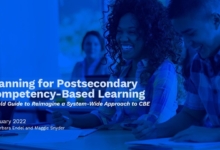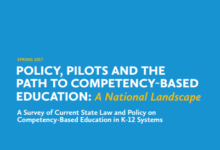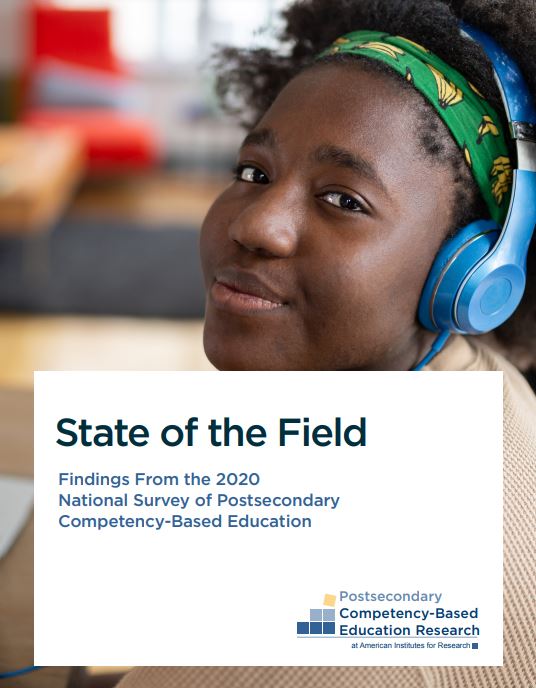This report presents findings from the 2020 National Survey of Postsecondary Competency Based Education (NSPCBE). The goal of the survey series is to understand and track the landscape of postsecondary competency based education (CBE) providing stakeholders with a better understanding of the current landscape. The survey covers topics that include perceptions of CBE, interest in CBE, implementation and adoption progress. The biggest takeaway from the 2020 survey showed that despite the major disruptions due to the COVID-19 pandemic there continued to be growth in programs and optimism about the future of CBE.
This report presents findings related to four key topics about the state of the field in 2020:
- CBE Adoption: CBE tends to be growing as the need for additional workforce readiness programs increases, but yet institutions continue to piecemeal programs together. As the pandemic has increased the knowledge and familiarity of learners and faculty with technology tools and remote learning, perceptions of CBE are shifting.
- CBE programs: Programs continue to serve a small number of students using various methods of instruction. The most commonly offered disciplines are in nursing and health professions, business administration, and computer and information sciences.
- CBE Students: Further research is needed, but the survey finds that CBE programs may tend to serve a greater proportion of adult learners and learners with prior credits.
- Barriers: Despite the perceived barriers most institutions remain hopeful about the future of CBE. However, barriers continue especially in dealing with piecemeal adoption.
The report concludes with key questions facing the field in 2020 specifically related to the COVID-19 pandemic and whether CBE can become a solution to some of the challenges exacerbated by the disruptions of 2020.
This report can aid Career Technical Education (CTE) leaders in building their knowledge base of CBE postsecondary opportunities and the necessity for bringing together all components of the programming to ensure barriers don’t persist with piecemeal applications of CBE.







